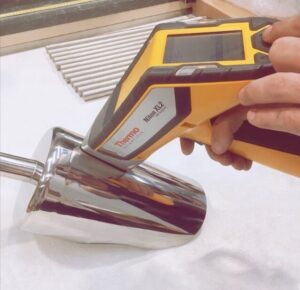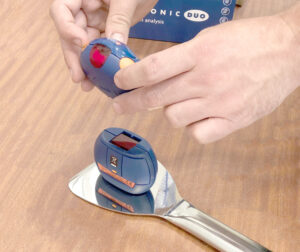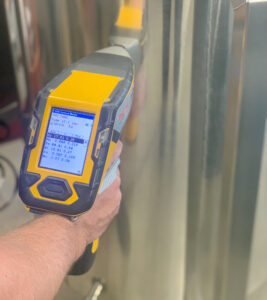News Blog
Keep up to date with the latest news, insights and features from Pharma Hygiene Products
What is Material Testing?
August 8, 2023
Material testing and certification can be carried out on plastics, metals including stainless steel, elastomers, composites and textiles amongst other things.
Put simply, material testing is a quantifying check carried out on a material to ensure it has the values associated with its properties. The method of verifying varies in relation to the material in question.

The purpose of material testing
Material testing helps to understand what materials would be suitable for a desired application and then select the most appropriate material for the intended use.
It helps us to find out what components are in the material, what chemical elements, and the quality of these elements. This can help us understand the characteristics of the material and it suitability for purpose or resistance to certain substances.

Material Testing Explained
Material testing can be carried out in the field, in a real-life working environment, or in a laboratory in a more controlled environment. Tests are guided by a set of standards.

The 5 main types of material testing
There are 5 most common types of testing materials carried out. These are mechanical testing; testing for thermal properties; testing for electrical properties; testing for resistance to corrosion, radiation, and biological deterioration; and nondestructive testing.
1. Mechanical testing
Used for structures and machines, and the components of these. This is carried out at the design stage via stress analysis and can also be confirmed with mechanical property through multiple variations of stress experiments.
2. Thermal testing
Thermal conductivity is calculated by using a controlled heat input from an external source applied to a bar or flat surface of the material and the journey of the heat timed.
Thermal expansion is a challenge to measure as many materials can expand in micro measurements. It is usually measured in a linear fashion, so as the change in a unit of length of material caused by a one-degree change in temperature.
3. Measuring electrical properties
Conductivity is generally measured by passing a known current at a constant voltage through a known volume of a material.
4. Testing for corrosion, radiation, and biological deterioration
Testing for breakdown due to exposure to an environment is crucial in key industries. This can often be part of a testing plan linked to mechanical, thermal, or electrical property tests carried out before or after.
5. Nondestructive testing
Tensile strength testing is destructive, so when the material is expensive, difficult to source, or costly to fabricate then nondestructive testing is a good option.
What is raw material testing?
Raw materials testing is essential in certain industries, such as pharmaceutical manufacturing, or consumer good manufacturing where there is a likelihood of ingestion or absorption.
Who can perform material testing?
Materials testing can be carried out by accredited professionals in many environments, with raw materials testing usually happening in laboratory conditions. In engineering and construction, material testing can be carried out alongside projects and onsite. There is usually a standards procedure followed for this and documentation carried out.
The benefits of Material Testing
The benefits of material testing include:
- Ensuring product quality.
- Identifying areas of concern or defects
- Proving a model of expected exposure through destructive means.
- Understanding mechanical properties of the materials used.
- Verifying the materials.
- Assessing integrity of a system.
The biggest advantage of material testing is the understanding it gives you of how a product might behave when in use.

Material Testing with Pharma Hygiene Products
Due to the heavily regulated nature of many of our customers’ industries, it is essential that we supply only the materials that we specify, to meet international quality compliance regulations.
1. X-Ray Testing Certificates
In heavily regulated industries, it is critical that we supply the stated materials. We can supply X-Ray Testing certificates to confirm the grade of stainless steel.
2. Surface Finish Analysis certificates
Surface Finish Analysis certificates to prove surface smoothness.
3. TSE Certification
TSE certification is also available upon request, to state that no animal fats have been used in the polishing process. This is vital to guarantee that no cross-contamination from BSE or CJD diseases occurs.
Using specialist testing and analysis equipment, we offer a cost-effective material testing service, backed up by comprehensive certification where required. This service gives you the peace of mind that you are getting what you are paying for, undertaking due diligence, and ultimately maintaining your quality control.
To find out more contact us via the chat button, email at info@pharmahygieneproducts.com or call us +44 1444 472 300.
 Chat with us!
Chat with us!